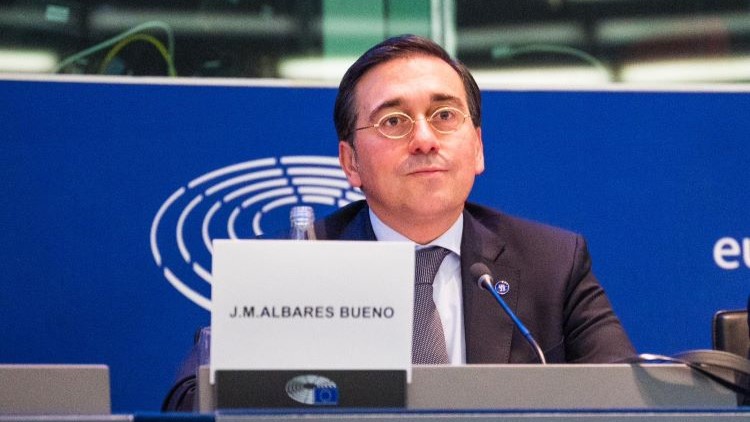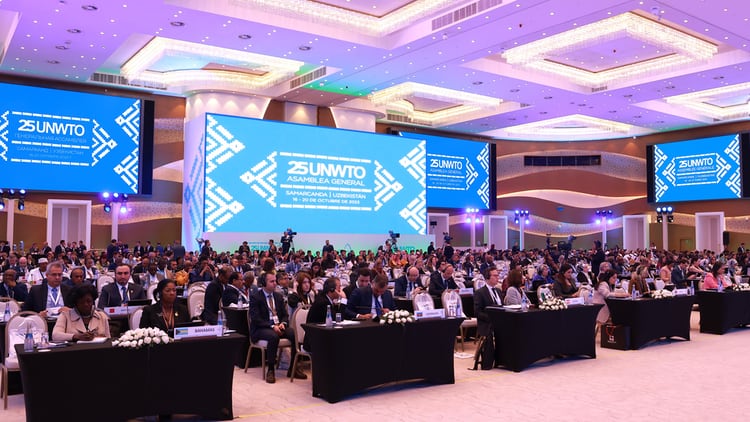Eduardo González
The acting Minister of Foreign Affairs, José Manuel Albares, assured yesterday in the European Parliament that the Spanish Presidency of the Council of the EU is especially interested in activating debates on the reforms of the European treaties in the face of a Europe of 30 members that “It is no longer hypothetical.”
The EU must “rethink” its institutional architecture to “preserve the proper functioning” of the Union in the event of enlargement, and, to do so, “the necessary reforms must now be identified and ruling whether reforms of the treaties are required and seeking a large agreement,” said Albares during his appearance before the Constitutional Affairs Committee of the European Parliament (AFCO) to present the institutional priorities of the Spanish Presidency, which has just reached its halfway point.
“It is a debate that we have to have, much more so when the whole issue of enlargement becomes topical,” he continued. “The expectations we create and the sacrifices we ask for must ensure that enlargement is a success,” he warned. “Time is accelerating and it does not seem so distant or hypothetical, and the Union must have the capacity to deepen its own development” if the foundations of the “Strategic Agenda” of a Europe with 30 members are to be laid, he added.
Among the reforms proposed by Albares before the European Parliament is the end of unanimity in decision-making, because “the Europe in which Spain believes and in which the Spanish Presidency believes, is an agile Europe, a resilient Europe, a Europe with the capacity to make the necessary decisions and face the great challenges of our time.”
Likewise, and along the same lines as the proposal presented last September by France and Germany regarding enlargement, the acting minister defended the possibility of modifying “the composition, organization and number of members of the European Commission in an enlarged Union”, and warned that another “very relevant piece in this debate” would be the configuration of the European Parliament.
Grenada Declaration
The Granada Declaration, approved on October 6 by the heads of State and Government of the EU during their informal meeting in the Andalusian city at the initiative of the Spanish Presidency, establishes that, “with a view to the perspective of an enlarged Union , both the EU and future Member States must be prepared.” Therefore, “aspiring members must intensify their reform efforts, particularly in the area of the rule of law, in line with the merit-based nature of the accession process and with the help of the EU,” it continues.
“In parallel, the Union must lay the foundations and necessary internal reforms”, establishing “our long-term ambitions and the ways to achieve them” and addressing “key issues related to our priorities and policies, as well as our capacity for action”, the text continues. “The European Council will continue discussions on the future priorities of our Union in the coming months, before the adoption of the Strategic Agenda next year,” the Declaration concludes.
The Declaration did not include any date for enlargement, not even the year 2030, which had been considered for this. “The Declaration does not set a date and a date was never set, and it is better that we do not focus on dates,” warned the president of the European Council, Charles Michel, in Granada. “Accession will be carried out based on the merits of each one, and the sole purpose of setting dates is to serve as an incentive for States to be prepared,” he added.
For her part, the president of the European Commission, Ursula von der Leyen, declared at that meeting that, in any case, the accession process of the candidate countries will be based “on the merits” of each candidate country. “There will be no coffee for everyone or shortcuts, each person’s progress will be analyzed based on the Copenhagen criteria,” she insisted.
The European Council next December will address, precisely, the next steps for the accession of Ukraine and Moldova to the EU and will analyze the reform agenda of the candidate countries and the recommendations of the European Commission.







